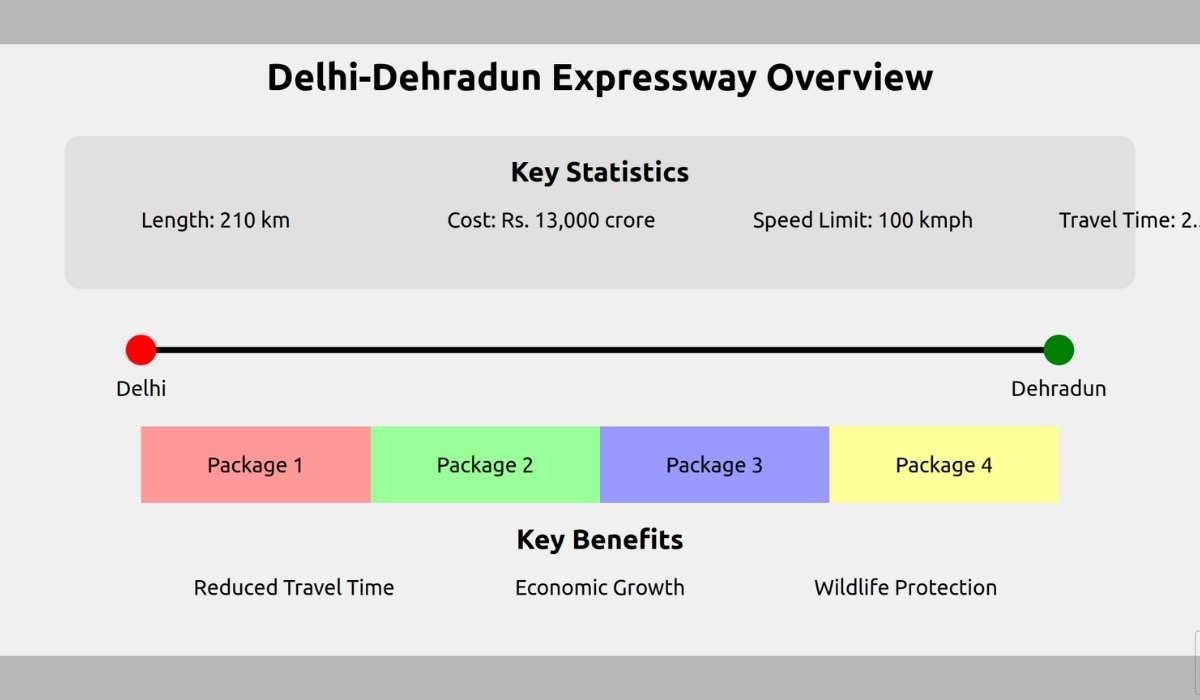Are you looking to build a steady stream of passive income without the daily hustle of a 9-to-5 job? Investing in rental real estate in India could be the answer you’ve been seeking. By strategically acquiring and managing rental properties, you can unlock a reliable source of monthly income that complements your existing finances or even becomes your primary revenue stream. In this comprehensive guide, we’ll explore the ins and outs of generating rental income in the Indian real estate market.
The Benefits of Rental Income
Compared to traditional investment avenues, rental real estate offers several distinct advantages that make it an attractive option for passive income generation:
- Consistent Cash Flow: Unlike stocks or business ventures, rental properties provide a steady stream of cash flow through monthly rental payments, offering financial stability and predictability.
- Long-Term Wealth Building: As property values appreciate over time, your rental real estate investment grows in value, creating long-term wealth and potential for capital gains upon sale.
- Tangible Asset: Real estate is a tangible asset that can be leveraged or sold for profit, providing a sense of security and control over your investment.
- Tax Benefits: In India, real estate investors can take advantage of various tax deductions, such as mortgage interest payments, property taxes, and depreciation, further enhancing the profitability of their investments.
Understanding Rental Property Types
Before embarking on your rental real estate journey, it’s essential to understand the different types of properties you can invest in:
- Residential Properties:
- Apartments, houses, or villas catering to families or individual tenants seeking long-term living arrangements.
- Stable and reliable tenant pool but may face challenges like tenant turnover and maintenance issues.
- Commercial Properties:
- Office spaces, retail outlets, or industrial units used for business purposes.
- Potentially higher rental yields but require specialized knowledge and longer lease terms.
- Vacation Rentals:
- Properties located in popular tourist destinations or hill stations for short-term stays.
- Highly lucrative during peak seasons but require active management and marketing efforts.
Each property type has its own set of pros, cons, target tenants, and potential returns, so it’s crucial to research and choose wisely based on your investment goals and risk tolerance.
Strategies for Maximizing Rental Income
To truly maximize your returns from rental real estate investments, you need to adopt effective strategies and best practices tailored to the Indian market:
- Location, Location, Location:
- Invest in properties situated in desirable areas with good infrastructure, amenities, and connectivity for higher rental yields.
- Factors like proximity to schools, hospitals, commercial hubs, and public transportation can influence demand and rental rates.
- Renovate and Upgrade:
- Well-maintained and modern properties command higher rents.
- Invest in renovations and upgrades to attract quality tenants and justify premium rental rates.
- Leverage Technology:
- Utilize online platforms and property management software to streamline tenant screening, rent collection, and maintenance requests.
- These tools save time, reduce administrative costs, and provide valuable insights into your rental portfolio’s performance.
- Build Strong Tenant Relationships:
- Treat your tenants with respect and address their concerns promptly.
- Happy tenants are more likely to renew leases and recommend your properties, reducing tenant turnover costs.
- Stay Compliant with Laws and Regulations:
- Familiarize yourself with local laws and regulations governing rental properties, including tenant rights, rental agreements, and taxation.
- Consult legal professionals or join real estate associations to stay informed and avoid legal complications.
- Diversify Your Rental Portfolio:
- Invest in multiple properties and locations to mitigate risks and ensure a more stable stream of income.
- Diversification allows you to leverage different market conditions and cater to a wider range of tenant preferences.
- Consider Professional Property Management:
- For investors with multiple rental properties or those preferring a hands-off approach, hiring a professional property management company can be valuable.
- These companies handle all aspects of property management, freeing up your time and reducing stress.
- Leverage Tax Benefits:
- Take advantage of tax deductions for mortgage interest payments, property taxes, and depreciation to minimize your overall tax liability and increase returns on investment.
Overcoming Challenges and Potential Pitfalls
While rental real estate investments can be highly rewarding, they are not without their challenges and potential pitfalls. Being aware of these challenges and implementing proactive strategies can help you mitigate risks and ensure the long-term success of your rental income endeavors:
Unlock Your Dream Home Today!
Get personalized real estate insights delivered straight to your inbox.
- Vacancy and Tenant Turnover:
- Invest in desirable properties in areas with high rental demand and offer competitive rental rates and incentives for long-term tenancy to reduce vacancy periods and tenant turnover costs.
- Maintenance and Repair Costs:
- Budget for maintenance expenses and set aside a portion of your rental income for a dedicated maintenance fund.
- Regular property inspections and preventative maintenance can help identify potential issues before they become major problems, reducing overall repair costs.
- Legal and Regulatory Compliance:
- Stay informed about the latest developments in rental laws and regulations at both the state and national levels.
- Consult legal professionals and join local real estate associations to ensure compliance and minimize legal risks.
- Market Fluctuations and Economic Downturns:
- Diversify your rental portfolio across multiple properties and locations to mitigate the impact of market fluctuations.
- Maintain a strong financial cushion and implement strict screening processes for potential tenants to weather temporary market downturns.
Conclusion
Generating rental income in Indian real estate is a lucrative and rewarding endeavor, offering the potential for consistent cash flow, long-term wealth building, and financial freedom. By understanding the various rental property types, implementing effective strategies, and staying informed about market trends and regulations, you can navigate the challenges and maximize your returns. Remember, successful rental real estate investing requires patience, diligence, and a long-term mindset. By consistently following best practices, building strong tenant relationships, and adapting to changing market conditions, you can unlock the full potential of passive income and create a solid financial foundation for yourself and your family. Start your journey towards financial independence and explore the exciting world of rental real estate in India today!
Investing in rental real estate in India offers consistent cash flow, long-term wealth building, tangible assets, and tax benefits, making it an attractive option for passive income generation.
You can invest in residential properties (apartments, houses), commercial properties (office spaces, retail outlets), and vacation rentals (properties in tourist destinations), each with unique advantages and challenges.
To maximize rental income, invest in desirable locations, renovate properties, leverage technology for management, build strong tenant relationships, and diversify your rental portfolio.
Typically, you should have at least 20-30% of the property's value as a down payment, plus additional funds for closing costs, repairs, and reserves for vacancies.
Both types have their pros and cons; residential properties generally offer a stable tenant base, while commercial properties can yield higher returns. Your choice should align with your investment goals and risk tolerance.
Landlords must comply with various laws, including rental agreements, tenant rights, and taxation. Understanding local housing laws and consulting a legal professional is crucial for compliance.
Set aside a portion of your rental income for a dedicated maintenance fund. Regular inspections and preventative maintenance can help reduce overall repair costs.
Investors can benefit from tax deductions on mortgage interest payments, property taxes, and depreciation. Consulting a tax professional can help maximize these benefits.
Use online platforms for advertising and screening tenants. Conduct background checks, verify employment and income, and request references from previous landlords for thorough vetting.
Common mistakes include underestimating maintenance costs, neglecting tenant screening, failing to comply with legal regulations, and lacking a long-term strategy. Diversifying your investment can also help mitigate risks.
Investing in rental real estate in India offers several benefits, including consistent cash flow, long-term wealth building, tax benefits, and the security of a tangible asset.
You can invest in various types of rental properties, including residential properties (apartments and houses), commercial properties (office spaces and retail outlets), and vacation rentals (properties in tourist destinations).
To maximize rental income, focus on property location, invest in renovations, leverage technology for management, build strong tenant relationships, and consider professional property management.
Common challenges include vacancy and tenant turnover, maintenance and repair costs, legal compliance, and market fluctuations.
Conduct market research by analyzing rental rates for similar properties in your area, considering factors like size, amenities, location, and current market conditions.
Landlords must comply with laws regarding rental agreements, tenant rights, and taxation. It's important to understand local housing laws and consult legal professionals for guidance.
Hiring a property management company can be beneficial, especially if you own multiple properties or prefer a hands-off approach, as they handle tenant screening, rent collection, and maintenance.
Investors can benefit from various tax deductions, including mortgage interest payments, property taxes, and depreciation, which can help minimize overall tax liability.
To mitigate risks, diversify your rental portfolio across multiple properties and locations, maintain a financial cushion, and implement strict tenant screening processes.
Common mistakes include underestimating maintenance costs, failing to screen tenants properly, neglecting legal compliance, and not having a long-term investment strategy.
Investing in rental real estate in India offers consistent cash flow, long-term wealth building, a tangible asset, and various tax benefits that enhance profitability.
You can invest in residential properties (apartments, houses), commercial properties (office spaces, retail outlets), and vacation rentals (properties in tourist destinations) depending on your investment goals.
Maximize rental income by choosing prime locations, renovating properties, leveraging technology for management, building strong tenant relationships, and diversifying your portfolio.
A general rule of thumb is to have at least 20-30% of the property's value as a down payment, along with funds for closing costs, repairs, and reserves for potential vacancies.
Conduct market research by analyzing rental rates for similar properties in the area, considering size, amenities, and current market conditions, and consult local real estate agents for guidance.
Landlords must comply with laws regarding rental agreements, tenant rights, and taxation, including understanding the Rent Control Acts and local housing laws.
Hiring a property management company can be beneficial if you own multiple properties or prefer a hands-off approach, as they handle tenant screening, rent collection, and maintenance coordination.
Set aside a portion of your rental income for a dedicated maintenance fund, conduct regular inspections, and hire reliable contractors to manage costs effectively.
Investors can benefit from tax deductions on mortgage interest payments, property taxes, and depreciation, which can help minimize overall tax liability.
Diversify your rental portfolio across multiple properties, maintain a financial cushion, implement strict tenant screening processes, and stay informed about market trends.
DISCLAIMER
The information provided on this website is for general informational purposes only. While we strive to keep the content up-to-date and accurate, we make no representations or warranties of any kind, express or implied, about the completeness, accuracy, reliability, suitability, or availability of the information, products, services, or related graphics contained on this website.
In no event will we be liable for any loss or damage including without limitation, indirect or consequential loss or damage, or any loss or damage whatsoever arising from loss of data or profits arising out of, or in connection with, the use of this website.
Real Estate Investment Risks
Real estate investments involve significant risks and market volatility. Property values, rental rates, and market conditions can fluctuate. Past performance is not indicative of future results.
Before Making Real Estate Decisions
Before making any real estate decision, we strongly advise you to:
- Conduct thorough due diligence
- Consult with qualified legal, financial, and real estate professionals
- Carefully review all relevant documents and contracts
- Consider your personal financial situation and investment goals
This website does not provide legal, financial, or investment advice. All content is for informational purposes only and should not be construed as professional advice or recommendations.
By using this website, you acknowledge and agree to these terms. We reserve the right to modify this disclaimer at any time without notice.







